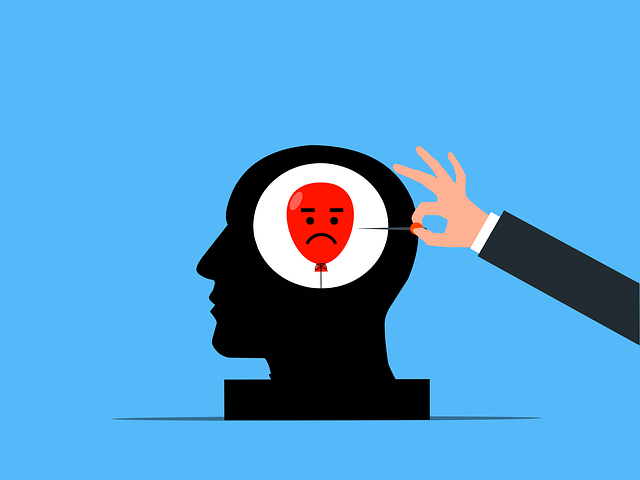Low mood is a common experience that many people face at some point in their lives. It can be caused by various factors, including stress, trauma, and interpersonal conflicts. When left unaddressed, low mood can have significant negative impacts on an individual’s mental health and quality of life.
As a mental health counselor or psychotherapist, it is important to understand the nature of low mood and how it can affect individuals differently.
In this article, we will explore some effective strategies for managing low mood and improving overall well-being. By taking proactive steps towards addressing low mood symptoms, individuals can regain control over their emotional state and achieve greater happiness and fulfillment in life.
Understanding Low Mood
 In the vast ocean of emotions, low mood is a stormy sea that can sometimes be difficult to navigate. It is a common experience for many individuals and should not be ignored or brushed aside. Understanding its causes and symptoms is vital in coping with it effectively.
In the vast ocean of emotions, low mood is a stormy sea that can sometimes be difficult to navigate. It is a common experience for many individuals and should not be ignored or brushed aside. Understanding its causes and symptoms is vital in coping with it effectively.
Low mood can stem from various sources such as stress at work, financial problems, relationship issues, or even genetics. Individuals experiencing low mood may exhibit several symptoms like sadness, hopelessness, lethargy, loss of interest in activities once enjoyed, irritability, and difficulty concentrating.
These symptoms can impact daily life negatively by affecting one’s ability to complete tasks efficiently or interact socially without feeling burdened. Coping mechanisms and strategies are essential tools that individuals can use to manage their low moods better.
Engaging in physical exercise, practicing mindfulness meditation or yoga, getting enough sleep, eating healthily, seeking therapy or counseling are some effective ways to cope with low mood. By incorporating these techniques into one’s routine slowly but regularly over time can help alleviate negative feelings and increase positivity.
In summary, understanding the causes and symptoms of low mood is crucial in identifying when support is necessary. Coping mechanisms and strategies provide an excellent foundation for managing this emotional state successfully. With patience and persistence in utilizing these methods consistently over time under professional guidance if needed will bring about positive change within oneself.
Identifying Triggers And Patterns
Understanding the nature of low mood is essential in finding ways to improve emotional well-being. If you are experiencing a low mood, it may be helpful to identify triggers that contribute to these feelings. Triggers can be past experiences or present stressors and identifying them can help develop coping strategies.
Past experiences such as traumatic events, loss or significant life changes can cause negative emotions that linger for long periods if not addressed properly. Negative thought patterns developed from those experiences could also contribute to current low moods.
Present stressors like job loss, relationship issues or financial problems can trigger feelings of hopelessness and anxiety leading to low moods.
Identifying patterns in your daily routine is also important when dealing with low mood. You may notice that certain times of day or days of the week tend to be worse than others. For example, Mondays might feel particularly difficult after a weekend break while evenings might be tougher than mornings due to fatigue setting in at the end of the day.
By understanding what causes your low mood and recognizing any patterns connected with it, you will have a greater chance of finding ways to alleviate symptoms effectively.
In therapy sessions, our counselors work collaboratively with clients using cognitive-behavioral techniques which help individuals learn how their thoughts affect their behavior and vice versa. This approach helps people make positive changes by developing more constructive thinking styles and behaviors that promote good mental health over time without resorting solely on medication.
Identifying both triggers and patterns linked with your low mood is crucial in finding solutions that lead towards improving overall emotional wellness. By doing so, one can understand better what contributes most significantly to their struggles and take necessary steps towards recovery through counseling interventions aimed at modifying unhelpful thought patterns into healthier ones conducive to positive growth and development over time.
Practicing Self-Care
In today’s fast-paced world, there is an increasing need to prioritize self-care practices in order to maintain our mental health. Low mood is a common experience that can be caused by various factors such as stress, lack of sleep and poor diet. The good news is that there are many ways you can practice self-care to help improve your low mood.
Journaling techniques have been found to be effective in reducing symptoms of depression and anxiety. Writing down your thoughts and feelings allows you to process them more effectively, giving you clarity on what might be causing your low mood. You can try free-writing for 10-15 minutes daily or use guided journal prompts to get started. This will allow you to develop greater insight into the root causes of your low mood.
Creative expression has also been shown to improve overall well-being and reduce depressive symptoms. Engaging in creative activities such as painting, drawing, writing or even dancing can provide a sense of accomplishment and boost confidence levels. These activities promote mindfulness which helps people become more aware of their own emotions and inner selves.
Incorporating these self-care practices into your routine may take some time but it will pay off in the long run. Remember, taking care of yourself mentally and emotionally should always be a priority because it contributes greatly to improving overall quality of life.
So go ahead and start practicing self-care through journaling techniques or engaging in creative expression – find what works best for you!
Seeking Professional Support
In practicing self-care, you may find some strategies useful in improving your mood. However, if these efforts do not produce any significant changes or the low mood persists for an extended period, seeking professional support is highly recommended.
Counseling benefits individuals with various psychological problems, including feelings of sadness and depression. Counselors provide a safe space where clients can express their thoughts and emotions freely without fear of judgment or criticism. They help identify the root causes of negative emotions and develop coping skills that enable clients to manage their symptoms effectively.
Different types of therapy are available to address specific concerns. Cognitive-behavioral therapy (CBT), for instance, focuses on identifying harmful thought patterns and replacing them with positive ones through behavioral change techniques such as exposure therapy. Dialectical behavior therapy (DBT) emphasizes mindfulness-based practices that teach individuals how to regulate intense emotions while enhancing interpersonal relationships.
Ultimately, seeking professional support can benefit those struggling with low moods by providing tailored treatments that meet individual needs. Therapy sessions offer a supportive environment where clients work collaboratively with therapists towards achieving mental wellness goals.
If you experience persistent feelings of sadness or loss of interest in activities once enjoyed, consider counseling services as a viable option to improve your emotional well-being.
Cognitive Behavioral Therapy
Cognitive Behavioral Therapy (CBT) is a talk therapy that has been proven effective in treating low mood and other mental health concerns. This type of therapy focuses on the relationship between thoughts, feelings, and behaviors.
CBT techniques can help individuals identify negative thought patterns and replace them with more positive ones. One benefit of CBT is that it helps individuals develop coping strategies for managing their low mood symptoms. Through collaboration with a therapist, patients learn to recognize triggers that contribute to their low mood and how to modify their behavior accordingly.
Additionally, CBT can teach individuals skills such as relaxation techniques or mindfulness meditation which can be applied outside of therapy sessions. Another important aspect of CBT is its emphasis on self-reflection and goal setting. Patients are encouraged to examine their core beliefs about themselves and the world around them, identifying those that may be irrational or unhelpful.
With support from their therapist, they can then work towards replacing these negative beliefs with healthier ones that promote resilience and positive growth. Overall, cognitive behavioral therapy offers numerous benefits for those struggling with low mood. By providing practical tools for managing symptoms through changing thought patterns and behaviors, this form of therapy empowers individuals to take control over their mental health outcomes.
While not a cure-all solution, CBT can be an effective treatment option when used in conjunction with other forms of care such as medication management or lifestyle adjustments.
Mindfulness And Meditation
Imagine your mind as a vast ocean, with waves constantly crashing and churning. Sometimes the water is calm, but other times it can feel like a stormy sea. When we experience low mood, it’s easy to get caught up in these waves of negativity and struggle to find our way back to shore.
However, by practicing mindfulness techniques and meditation benefits, we can learn to navigate these waters with more ease.
Mindfulness involves bringing awareness to the present moment without judgment. By focusing on our breath or bodily sensations, we can train our minds to be less reactive and more accepting of whatever arises. This helps us develop a sense of inner peace and resilience that can buffer against negative thoughts and emotions.
Meditation has been shown to have numerous benefits for mental health, including reducing symptoms of anxiety and depression. Regular practice can also improve attention span, increase self-awareness, and foster feelings of compassion towards oneself and others. Even just a few minutes a day can make a difference in how you approach life’s challenges.
If you’re new to mindfulness or meditation, here are some tips to help you get started:
– Find a quiet space where you won’t be disturbed
– Sit comfortably with your spine straight
– Focus on your breath or choose another anchor point (such as a mantra)
– Notice when your mind wanders and gently bring it back to your chosen focus
– Be patient with yourself – this is a skill that takes time to cultivate
By incorporating mindfulness techniques and meditation benefits into your daily routine, you may find that your low mood begins to lift naturally over time. Remember that there is no ‘right’ way to meditate – what matters most is showing up consistently for yourself with an open heart and mind.
Lifestyle Changes For Improved Mood
Incorporating mindfulness and meditation into your daily routine can be an effective way to manage low mood. However, lifestyle changes such as exercise routines and dietary modifications can also have a significant impact on improving your overall mental health.
Engaging in regular physical activity has been shown to reduce symptoms of depression and anxiety. Exercise releases endorphins, which are natural chemicals that boost mood and energy levels. Developing an exercise routine tailored to your preferences and abilities is important for long-term adherence. It may be helpful to start with low-impact activities like walking or yoga before gradually increasing the intensity.
Dietary changes can also play a crucial role in managing low mood. A balanced diet rich in fruits, vegetables, whole grains, lean protein, and healthy fats provides essential nutrients for optimal brain function. Avoiding processed foods high in sugar and unhealthy fats can help regulate blood sugar levels and improve gut health, both of which contribute to better mental health outcomes.
It is important to note that making these lifestyle changes takes time and effort. Consistency is key when incorporating new habits into your daily life. Additionally, seeking support from a therapist or counselor can provide additional guidance and accountability on this journey towards improved mental well-being.
Frequently Asked Questions
Can Low Mood Be Cured With Medication Alone?
One anticipated objection to the idea that medication can effectively cure low mood is the potential for side effects, such as weight gain or loss of libido.
It is important to note that while medication may be effective for some individuals in treating low mood, it is not a one-size-fits-all solution and alternative therapies should also be considered.
These may include cognitive-behavioral therapy, mindfulness practices, exercise, and social support systems.
As mental health counselors or psychotherapists, it is our duty to assess each individual’s unique needs and work collaboratively with them to create a comprehensive treatment plan that addresses both their physical and emotional well-being.
How Long Does It Typically Take To See Improvements In Mood With Self-Care Practices?
Improvements in mood with self-care practices vary based on individual factors, such as severity of symptoms and adherence to the recommended interventions.
It is recommended that individuals track progress by keeping a journal or using apps designed for this purpose.
However, it should be noted that seeking professional help can provide additional benefits, including personalized treatment plans and access to evidence-based therapies.
Additionally, mental health professionals can monitor progress more objectively and make adjustments accordingly.
Ultimately, the length of time it takes to see improvements in mood depends on various factors but incorporating self-care practices along with professional guidance may lead to better outcomes.
Are There Any Natural Remedies For Low Mood?
For individuals seeking natural remedies for low mood, there are various options available.
Herbal remedies such as St. John’s wort and SAMe have been found to be effective in treating mild to moderate depression symptoms.
Exercise routines also provide a natural way of boosting one’s mood by releasing endorphins that improve feelings of happiness and well-being.
It is important to note, however, that these methods should not replace professional treatment if the individual is experiencing severe or persistent symptoms.
A mental health counselor or psychotherapist can provide personalized guidance on incorporating these practices into an overall treatment plan for managing low mood.
Can Low Mood Be A Symptom Of A More Serious Underlying Condition?
Low mood can be a symptom of various underlying conditions such as depression, anxiety, bipolar disorder, and other mental health disorders.
It is important to recognize that low mood can have multiple potential causes, including biological factors like genetics or chemical imbalances in the brain, environmental stressors, traumatic events, and lifestyle choices.
In addressing this concern, therapy options may range from cognitive-behavioral therapies to interpersonal psychotherapy and even medication management.
A professional evaluation by a licensed counselor or therapist could help identify the specific cause of one’s low mood and provide personalized treatment recommendations accordingly.
How Can I Help A Loved One Who Is Experiencing Low Mood?
When a loved one is experiencing low mood, it can be difficult to know how best to support them.
One way to show support is by actively listening and offering empathy. It’s important to acknowledge their feelings without trying to fix the problem or offer unsolicited advice.
Encouraging self-care activities such as exercise or engaging in hobbies can also be helpful.
However, if the low mood persists for an extended period of time or interferes with daily functioning, it may be necessary to seek professional help options such as therapy or medication management from a mental health provider.
A trained therapist can provide evidence-based treatments that are tailored to the individual’s specific needs and circumstances.
Conclusion
Low mood can be a complex and challenging condition to manage. While medication can play an important role in managing symptoms, it is seldom the only solution.
Self-care practices such as exercise, mindfulness, and social support are critical components of improving one’s emotional well-being. It typically takes several weeks or even months for these self-care practices to produce noticeable results.
For those who prefer natural remedies, there are several options available including herbal supplements like St John’s Wort and omega-3 fatty acids found in fish oil. However, it is essential to consult with a healthcare provider before starting any new treatment regimen.
It is also important to note that low mood may be a symptom of an underlying medical condition such as thyroid disorder or vitamin deficiency. As mental health counselors, we encourage individuals experiencing persistent low mood to seek help from trained professionals who can provide accurate diagnosis and effective treatment.
In conclusion, treating low mood requires a multi-faceted approach that involves both medication and self-care practices. By taking steps towards better emotional wellness through professional care, healthy lifestyle choices, and supportive relationships, individuals can experience improved quality of life and greater overall happiness.









